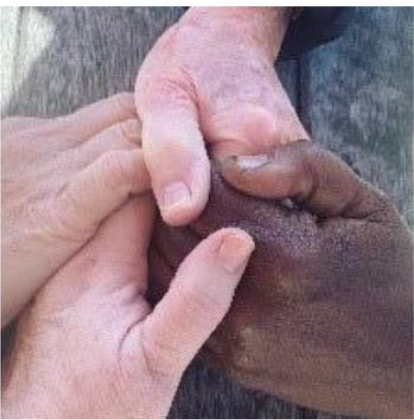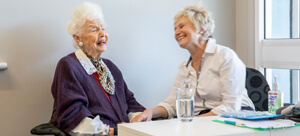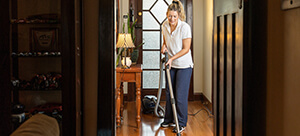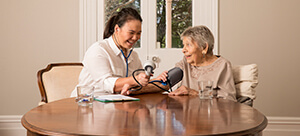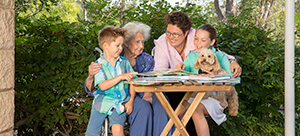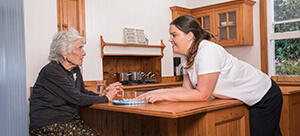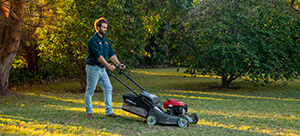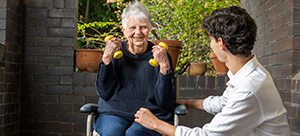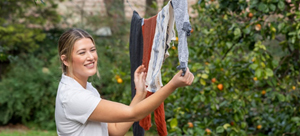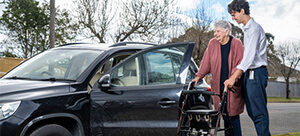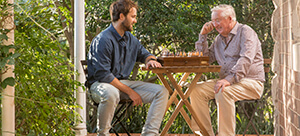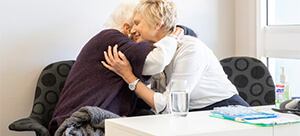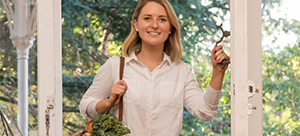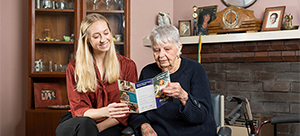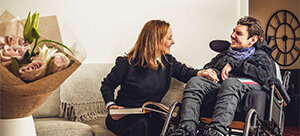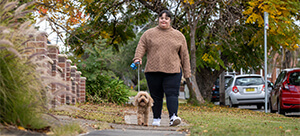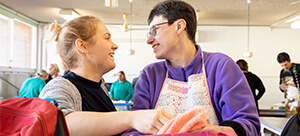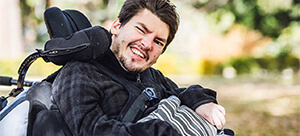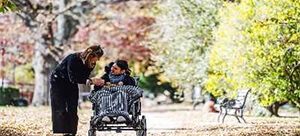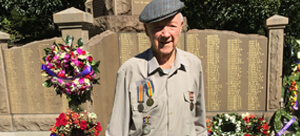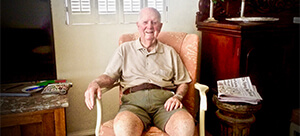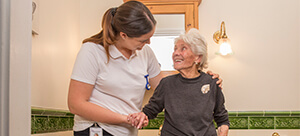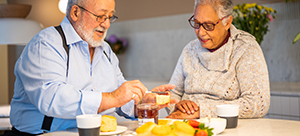Regal Community
In Conversation: Anna Shepherd with Alice Achan & Philippa Tyndale

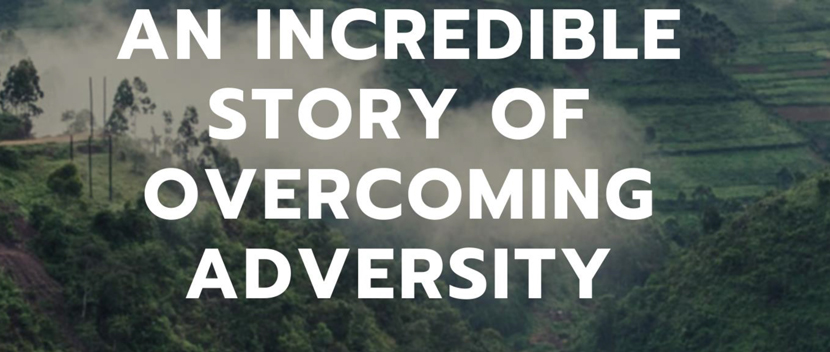
Thank you for joining us for our first IN CONVERSATION your feedback says it all.
“Very inspiring, thank you for sharing your story’
Karin van der Sar, Independence Australia
‘Thank you for writing the book and sharing your story, such great leadership, such a wonderful agent for change’.
Vicki Allen, Chair, Mortgage Choice, BT Funds board, Bennelong Funds Management
‘Wholistic Forgiveness” Alice Achan
– Love that – acknowledgement to be heard’
Suzy Jacobs, Founder, Activator Academy
‘Remarkable bravery and determination, wonderful insights share with these girls, the past cannot be changed, what the girls do now is what is important, education, love and support is their way forward’
‘How can we help you, this story is Extraordinary, the problem is very complex companies should be supporting Alice, it is a global responsibility to prevent these atrocities from continuing’.
Carolyn Charlton, Smith & Nephew
‘Everyone is important! I love this sentiment, so true’.
Kitty Hutchinson, Chair, Australian College of Nursing, Nursing in the Community Leadership Committee
ALICE ACHAN Co-Author ‘The School of Restoration’ Allen & Unwin
Alice Achan, founder of the Pader Girls Academy and Co-Author of The School of Restoration.
- Alice Achan was just 13 when her idyllic life in Northern Uganda changed forever.
- Conflict and terror suddenly ruled her day-to-day existence and she soon found herself living in a battlefield.
- She spent 5 years on the run from the LRA (the Lord’s Resistance Army), lost much loved family members to war and HIV and spent most of her teenage years out of school.
- Alice’s experiences as a teenager didn’t break her.
- After escaping the war to finish high school and a diploma in social work, she moved back into the heart of the conflict in 2002 to help and nurture the girls who had been victims of sexual violence that was a trademark of the LRA’s 20 year campaign.
- In 2008, The Pader Girls Academy – a school of restoration – was founded by Alice out of her desire to help these girls, many of whom had babies, HIV and were ostracised because they were pregnant to the rebel soldiers.
- Alice has gone on to build a second school for vulnerable girls, maternal and child health facilities and a shelter for women and girls affected by domestic abuse.
Alice came to Australia in March for the launch of her co-authored story, The School of Restoration, and had been unable to leave due to COVID-19, she has now returned home.
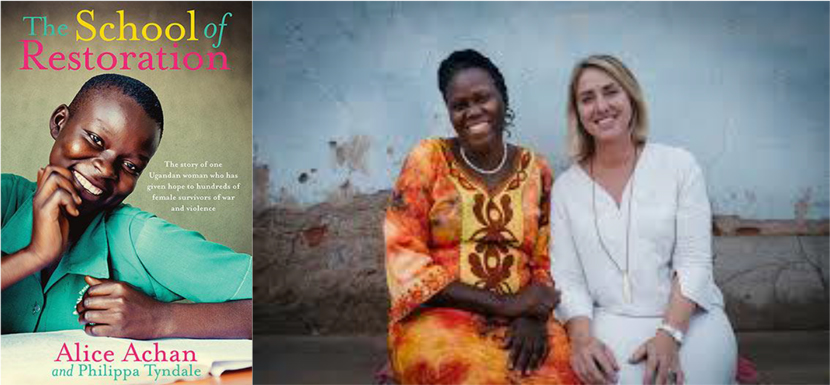
PHILIPPA TYNDALE Co-author of the book ‘The School of Restoration’
Philippa Tyndale is a writer and philanthropist who started her career in financial journalism at the Australian Financial Review.
- Philippa has been engaged in humanitarian work and international development for 25 years
- much of that in poverty alleviation through the microfinance programs of global microfinance organisation, Opportunity International.
- Her first book, Don’t Look Back – The David Bussau Story, tracks the life of David Bussau, from an orphanage in New Zealand to co-founder of Opportunity International, which now serves 6 million poor entrepreneurs.
UNDOING | TAKING COURAGE
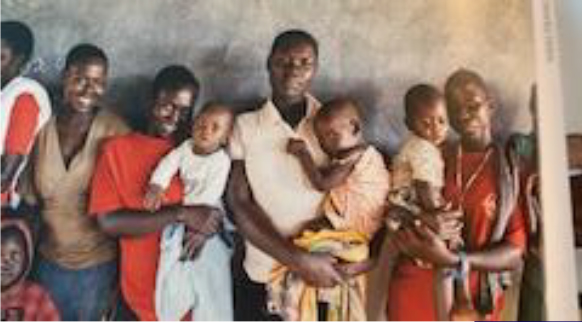
Alice Achan talked about her childhood growing up in a rural life in a very peaceful loving family. My Dad had 5 wives and we had 27 siblings. Life was good, as a child I never witnessed childhood poverty, my Dad had enough cattle and we had enough food. I knew nothing would threaten my life, there was a lot of social support in my family. Until I was 13 years old when civil war erupts in my community and this was the fighting between the government and the resistance, and another war between the cattle rustlers who would try to steal cattle. Then I became insecure, my Dad lost his power as the head of the family. And I felt insecure among my community. I lost of family members, we had the rebels who would take girls forcefully, abduct boys and recruit into military fighting, very difficult for any parents to defend their children, these men with guns, when they tried they would kills them.
They even got their children to kill family members, this was part of the recruitment process for young boys. Many young girls became sex slaves as young as 12, 13, 14. Their main role was to satisfy the sexual desire of the rebel commanders. Bared the pain of sexual slavery and abuse. The only way was to run away, into the bush, with little children and take care of them without water or food, it was very difficult. I led this life for 2-3 years as may young girls were, the parents felt powerless. There were trust issues amongst the community, you didn’t know who you were meeting, it could have been adults who led the rebels to find the children. I spent a lot of my life running, schools became accommodation place for the rebels.
I was out of school for three years, then I moved to the bigger city, war continued in my country. The rebels would come and abduct in the city. Then I returned to school, then there was a big raid in my school where many young girls were taken, then I had to move to another city away from my family very far away. I then finished to year 10. We constantly lived in fear, we did not know what would happen the next day. Many girls were abducted, they had children, and many didn’t come back but many came back wounded and legs destroyed.
As I was about to sit my final exam in year12, my brother and sister in law became sick, unfortunately my sister in law died with a young baby who was six months. War still continued in my village. My brother lost his job, he had three children and I had to look after my brothers’ baby and I had to drop out of school, I stayed with them for one year. Eventually I completed my final year and completed a social work degree and social administration.
My education background was totally disrupted, but I was so determined as I knew that education was the best way that would help me, first of all to help my mother because as I was growing up, even though we had a lovely family, but my mother would sing and cry, in Africa we sing and dance when we celebrate and sing when we are sad. I knew my mother was going through a trauma, seeing my mother cry made me confused as I wasn’t sure why she was so sad. I said to myself if my mother had gone to school she would not have been in this situation. I then made a decision not to marry into a family where there were so many wives. I really wanted to get something so that I could support my mother and other girls in my community.
BUILDING A DREAM
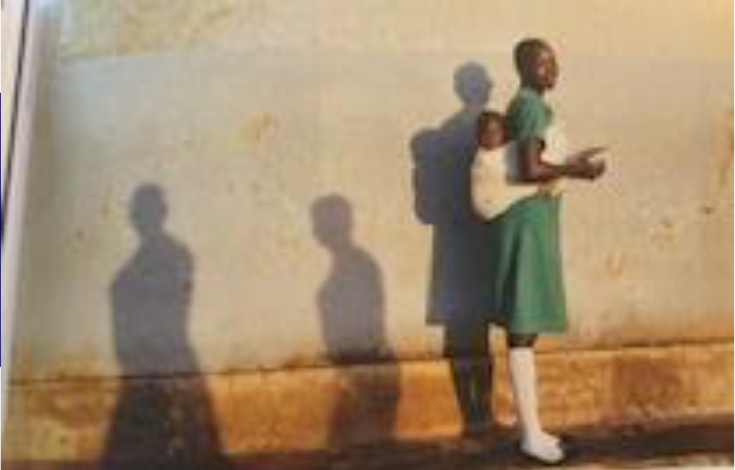
It was so difficult to realise my dream, I would see nobody come to help me and support me, mentor me. When I completed my grade 12, I went back to my community, I was given a job by one of the charities as a social worker. Another traumatic event was my brother got HIV. I came across a young girl who gave birth to children with HIV. I saw a young girl have a baby who died when she was 6 years old, it made me feel so bad.
Internally displaced camps where people were put in one big camp protected by the military. When I started working in the camps, I saw the same thing that was happening when I was a child. I saw parents who didn’t know anything about their children who didn’t know if they were dead or alive. I witnessed the guards in the camps raping the women in the camps. I felt so bad to see it all happening again.
I came across a young 16 year girl, whose family were nowhere to be seen. She had a baby and had another one coming. I had my own problems however I brough this young girl into my home and I asked a colleague if she could be trained, she did so well, she learned to make clothing and raised money for herself and her children. This inspired me but I didn’t really know how to do it, to create a dream for education for helping other girls. This really unlocked this dream of mine. I made a big decision and resigned as a social worker. I returned to my community where I witnessed all these atrocities, the same problem is still going on.
FAITH
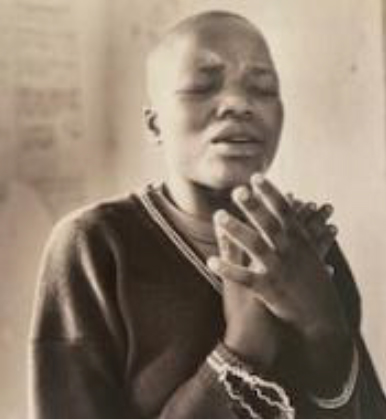
I’m a Christian, we would have a morning devotion, we would wake up in the morning while it was calm. Before the rebels would come along, they were still abducting children and raping young girls. Many young women would come to the morning and tell their stories. Of how the rebels would come into their villages overnight, where they witnessed their children being killed and raped. It was so painful for me to hear these stories.
JUST A WOMAN
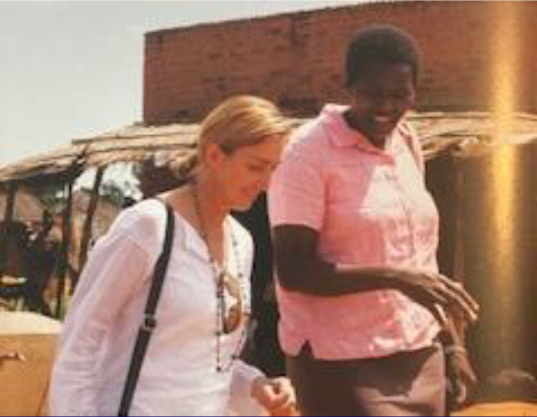
I said to myself, what can we do as women, with this group of women sharing their stories, I was 25 and been through my own trauma with my education. I could listen and we would cry together, and realise that sharing these stories would build this group together, this group became very strong, we talked to each other and through sharing these stories we still heard stories where the rebels came. Then there was a major attack where they killed refugees from southern Sudan. Then the UN declared this a no-go area. Then after time people started return out of hiding in the bush. These women we had been coming together for 6 months, would sneak out to their homes get food, beans, rice and maize and we would feel the children.
After 6 months UNICEF started coming and provided tents, women constructed clay house. This was used for delivery rooms, where women had their babies. UNICEF then started sending medical supplies, tents and assistance. A reception centre was established to provide counselling support for these young women and children. Then the Pader School was established. Children were dying losing 100 people a day from diarrhea and cholera. I did that with very little experience. The women’s desire to help the girls and we used the grandmothers to support the girls. I knew this would be good to help the girls.
LEARNING TO RUN
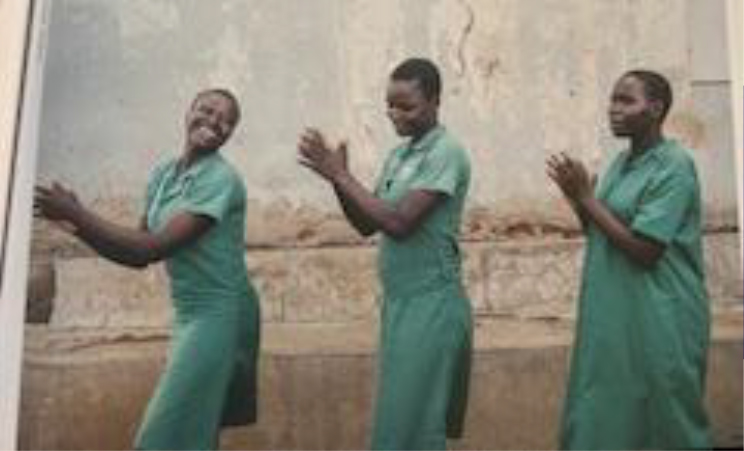
In 2007 the government and the rebels began the peacemaking negotiations. The rebels resettled into the Congo, as the peace negotiation began. People began to return to their homes. The girls came back pregnant from the rebels and they were rejected by their communities, so we had to keep them in the centre as we negotiated with the communities. Some were accepted and some weren’t’, many were abducted from schools. As trust began, the schools began to open up and, in the reception centre we started as a school during the day and a place to sleep at night.
THE WORLD OPENS
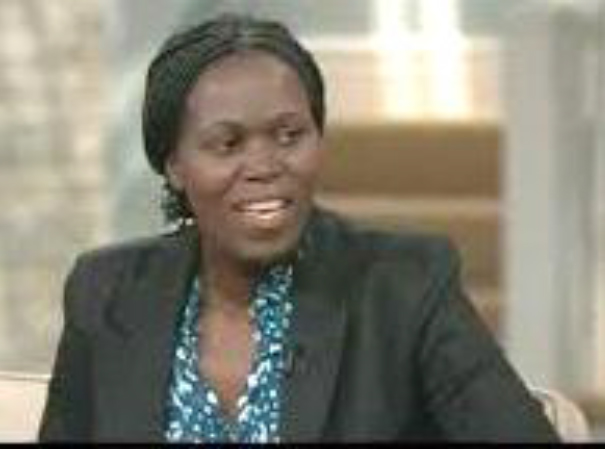
Alan Roth the Canadian Ambassador wrote to the Macarthur Foundation and this began the Pader Girls Academy in 2007. We built a boarding school and a daycare centre so the girls can attend school. There were 46 girls who were from the LRA and we addressed their needs. We didn’t have qualified social workers, so we used the grandmothers who were house mothers and supported the girls.
The journey began in reaching out, mobilising women and I built the school and I met Pip (Philippa Tyndale).
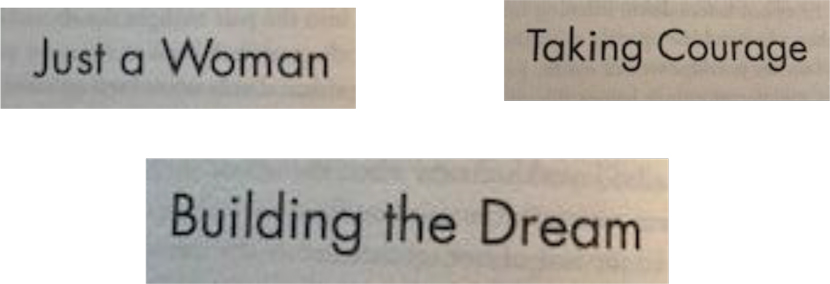
IN CONVERSATION
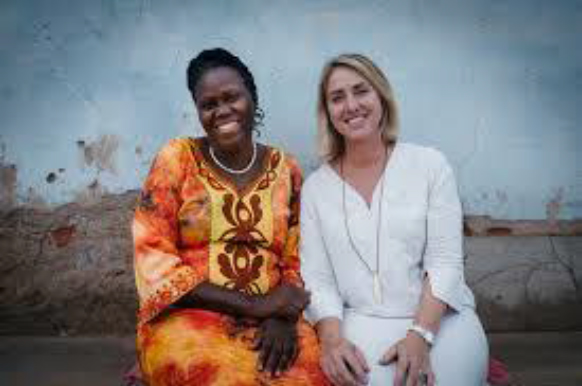
ANNA SHEPHERD | How did you both meet?
Philippa Tyndale said she met Alice at a conference in Kampala. Then Alice came to Sydney and I went back up with Alice to see the school and it was only 3 months after the school opened. I was met with the face on the cover of the book, babies everywhere, it was all very confronting. I didn’t know Alice’s back story; I could see that she had done something remarkable in building the school. I could see it was not a secure place and it was just remarkable. As I got to know Alice, I was intrigued and started to map out the journey and the story. Alice said she it would really help the girls to tell their stories. In this conflict the girls are just invisible, you hear about boys in conflict, as we talked, I started to think about the suffering that goes on in the girls. We set about the task of getting Alice’s story down. We had challenges of both being on opposite sides of the world. I wrote it in first person, second person and then back to first person. Alice’s culture is very oral and I felt her story had to be in her voice. There are several themes including resilience in how you go through what she did and how inspiring it is that she came out of this stronger. I’ve had a response from readers that in reading Alice’s story that it gave them strength. A very strong theme in the book is forgiveness. The girls go through a process of having to forgive the perpetrators, there is no other way, they will never see them again, they come out of the bush, this was a very strong theme in Alice’s story. I could see the results of Alice’s’ fight for education in the Pader School.
ANNA SHEPHERD
I wonder what the influence of your parents was in giving you the sense of survival?
You saved yourself, you had faith in yourself and you supported others.
I wanted to know what your sense of calling was to create the dream you talk about.
ALICE ACHAN
Humanity and compassion for others is what I saw growing up, in seeing people come to my home who visited my father who was respected in the community. This gave me a sense of myself. I just could not imagine that this thing was still happening from when I was a child when I returned in my 20s. If I could do something and make the lives of others better, I had to do something. I had an inner strength pushing me that something must change, something must happen. I was mentally strong, nothing was going to stop me, I did not experience fear. I have a tremendous Christian faith and this kept me going forward. When you are in a desperate situation, if it benefits you and others, it will be successful. I have witnessed so many people dying because they couldn’t access food, medicine and water.
ANNA SHEPHERD
In reading your book, a metaphor of the tree of life really stood out for me, the tree you go to that gives you hope and faith, I think there are so many other women and girls in your situation that didn’t do what you did. There is something within you that makes you strong and your faith is evident. Bringing the grandparents together to support the girls is brilliant, bringing elders together, when in our society our elders are often isolated and not able to contribute is an important factor in your story.
ALICE ACHAN
Again, it’s a cultural thing, we learn from our elders in an oral way, they teach in parables, they help you to distinguish between right and wrong. Parents involved at any early age is very important. Grandparents have witnessed life and give you the foundation before you go to school, this is very important in our culture, involving grandparents.
ANNA SHEPHERD
Taking our elders out of community in the 70’s I believe was a mistake as we now don’t have our grandparents involved in families as they once were.
Alice you continue to take little steps in achieving success. What is the next thing you want to accomplish?
ALICE ACHAN
Having scholarships for the girls, there is still a lot of social discrimination for the girls, a lot are marrying early and experiencing sexual violence. Sexual violence in Uganda is the highest incident reported to the Police Department. Sexual violence is never prosecuted, it is becoming normal and accepted by the community. There is a lot of economic pressure that the mothers are going through, our immediate need is putting these girls in school. Its $300 per girl per year this includes boarding school, baby day care and other school requirements. Also, we are doing reproductive health at a maternity centre, because of early pregnancy, many of these girls are at risk. We have birthing kits for $20 that helps the girls.
ANNA SHEPHERD
Philippa was talking about forgiveness, where did you find a place in your heart and how did you realise the power of forgiveness?
ALICE ACHAN
In my culture forgiveness is something that is practiced very well, many people are affected by atrocities. Many people see family members do unimaginable things with the soldiers reporting family members, abuse and being captured. One thing that is important is that you are out, you survived. The choice is yours, to live in your trauma and bitterness or the choice to go through the healing process. Having a forgiving spirit and a forgiving heart the key to unlocking the trauma. I have lost a lot of time in pursuing my education and the chance of having a child, yet I lead with forgiveness and go across the bridge and the opportunity to live a new life.
The girls have the opportunity to deal with the emotional trauma and the opportunity to forgive and reconcile. It doesn’t give you any material benefit but it helps you to begin a new life. Its like dropping the old clothes and putting on the new ones. It gives you the opportunity to build a bridge and deal with it, release the emotions and get counselling. A new identity, a new purpose and define your purpose, a new future for the girls is a powerful message for them, there is no social justice for them, the rebels and commanders are not held to account. The important message we have to pass onto the girls, the choice is yours, it robs you of your dignity if you don’t forgive, you will remain stuck, if you choose to remove this pain through forgiveness it rewards you more than any compensation.
ANNA SHEPHERD | How many girls have gone through the Pader School?
ALICE ACHAN
Over 1,000 girls from 2008 to the last year. The first lot of girls came out in 2011, many of them we have supported to train as teachers, nurses and midwives. If you finish your grade 10 you can come out and train as a teacher, enrolled midwife and enrolled nurses. Investing in their education taking them to university gives them opportunities, we do a lot of fundraising to get them there. They can begin earning after grade 10. 40% of the girls train as nurses, teacher and midwives. This is an important pillar for me for them to return to their own communities. Seeing them working as nurses and midwives and teachers in their community, it gives the community confidence.
ANNA SHEPHERD
This year is the international year of the nurse, it’s a great opportunity for us to support you here.
Trust is a big theme in your story. I love that you dance, you video yourself dancing and share it with your community while you are here as a way of keeping connected.
ALICE ACHAN
We sing and dance is something we use as therapy for the girls, to release out the bitterness, all of us dance and the girls love dancing, they talk, they cry and they pray.
ANNA SHEPHERD | Philippa tell us about your experience as an author, taking on Alice’s story and translating.
PHILIPPA TYNDALE
It has been an extraordinary journey, you can imagine going into someone’s life and pulling it apart, you become very good friends, listening to Alice’s stories about herself and her family. Its very painful to hear about what she has gone through when you care so much about the person, I wanted to put myself in her shoes, I visited and went to the hiding place in bare feet and tried to imagine what it was like as a 13 year old girl to feel what it was like for her. I would sit in the huts at night and hear, smell and experience what Alice might have.
ANNA SHEPHERD | It’s great to see you wearing orange today Alice, it’s the colour of Community Nursing Week coming up in September this year. We are focusing on ‘keeping people safe at home’ and it’s the International Year of the Nurse and Midwife, a great time to be supporting primary healthcare initiatives such as yours in educating young women to be Nurses and Midwives.
SUPPORT
You can support Alice and her work by buying the book and going online to visit the website for the school and sponsor education for the girls. We invite you to get involved in any way you can to support Alice Achan and the Pader School.
LINK TO BUY THE BOOK ‘THE SCHOOL OF TRANSFORMATION’
LINK TO THE PADER SCHOOL FOR GIRLS

Patricia Shepherd, Founder, Regal Health and Anna Shepherd met up with Alice Achan and Philippa Tyndale in preparation for our In Conversation today. Wisdom Exchanged.
